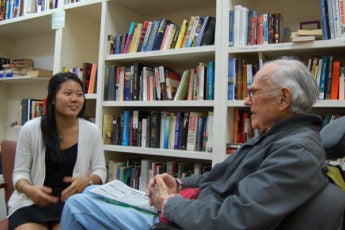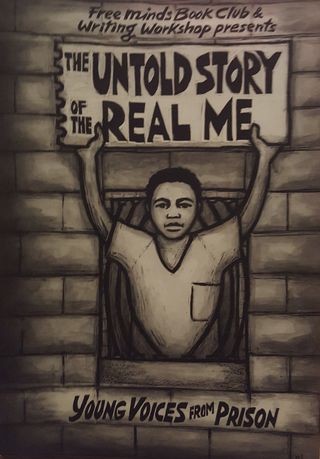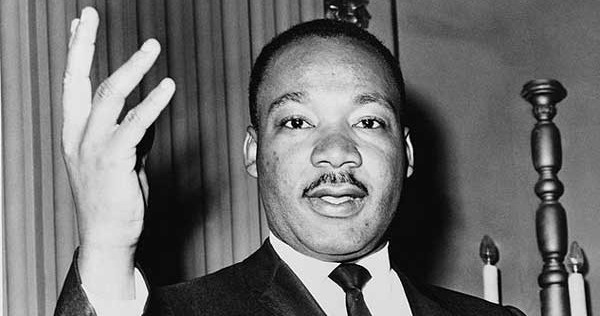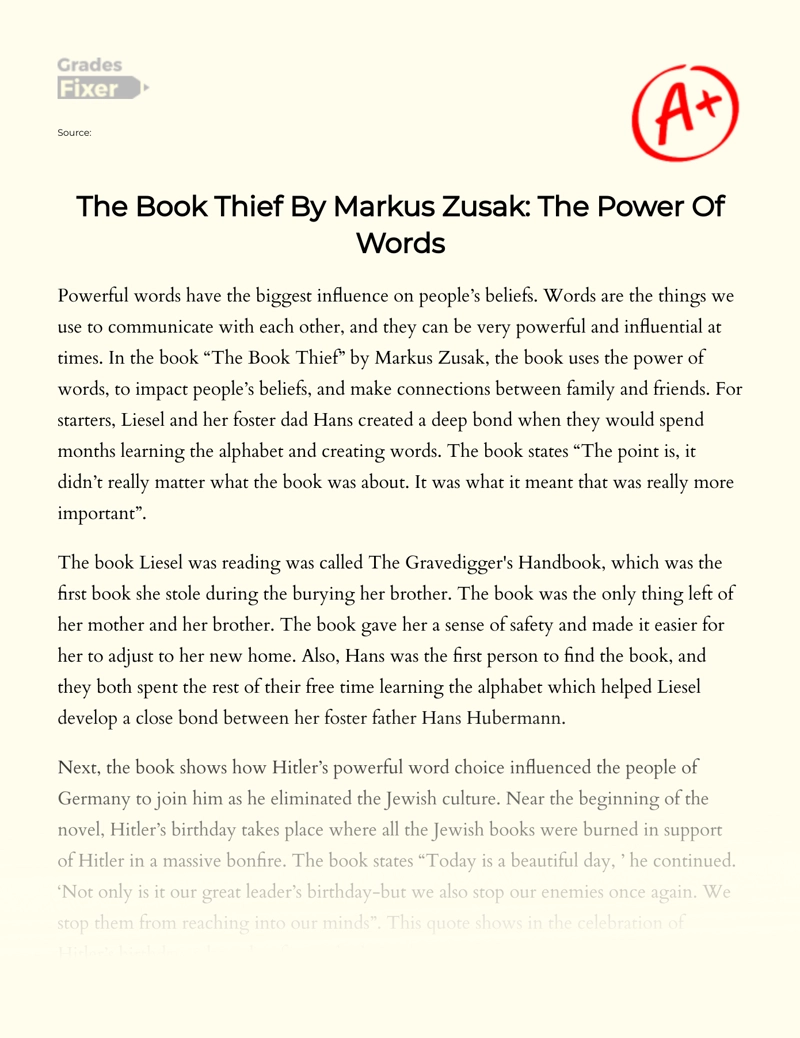

Essay on The Power of Words
Students are often asked to write an essay on The Power of Words in their schools and colleges. And if you’re also looking for the same, we have created 100-word, 250-word, and 500-word essays on the topic.
Let’s take a look…
100 Words Essay on The Power of Words
The power of words.
Words are more than just a means to communicate. They have the power to inspire, motivate, and change perspectives.
Words Inspire
Words can inspire us to achieve great things. They can encourage us to strive for success and never give up.
Words Motivate
Motivational words can help us to overcome challenges. They give us the strength to keep going when times are tough.
Words Change Perspectives
Words can change our views. They can help us see things from a different angle, opening our minds to new ideas and possibilities.
250 Words Essay on The Power of Words
The influence of verbal expressions.
Words, the foundation of human communication, are potent tools that shape our reality. They contain the power to inspire, motivate, and transform lives, as well as the capacity to demoralize, harm, and create discord.
Words as Catalysts of Change
Words can instigate revolutions and inspire social change. Historical figures like Martin Luther King Jr. and Mahatma Gandhi utilized the power of words to galvanize masses, leading to significant societal transformations. Equally, in literature, authors use words to challenge prevailing norms, stimulate thought, and foster empathy.
The Destructive Power of Words
Conversely, words can also be destructive. They can perpetuate stereotypes, incite hatred, and trigger conflict. Words used irresponsibly, without consideration for their potential impact, can cause irreversible damage.
Words in the Digital Age
In the digital age, the power of words is amplified. Social media platforms provide a global stage where words can spread rapidly, influencing millions within seconds. This underscores the need for responsible communication to prevent the spread of misinformation and hate speech.
In conclusion, the power of words is undeniable. They shape our perceptions, influence our actions, and define our society. As such, we must wield them responsibly, understanding that our words can either build bridges or erect barriers. The choice is ours.
500 Words Essay on The Power of Words
The essence of words.
Words, the basic building blocks of communication, are more than mere symbols or sounds. They carry immense power, shaping our thoughts, actions, and the world around us. They can build bridges or erect walls, heal wounds or inflict pain, inspire revolutions or maintain status quo.
The Constructive Power of Words
Words have the power to create. They are the vessel through which we express our thoughts, emotions, and ideas. In literature, authors use words to craft vivid imagery, compelling narratives, and profound insights, transporting readers into different worlds. In science and philosophy, words articulate complex theories and abstract concepts, advancing human understanding.
The Power of Words in Interpersonal Relationships
In interpersonal relationships, words can nurture bonds, express love, and foster understanding. A well-chosen word can mend a broken relationship, while a harsh one can irreparably damage it. Words have the power to validate someone’s feelings, making them feel seen, heard, and understood.
However, the power of words is not always positive. Words can also destroy. They can breed hatred, instigate violence, and perpetuate stereotypes. Hate speech, for instance, uses words to marginalize, intimidate, and dehumanize certain groups, leading to social division and conflict.
The Power of Words in Politics and Society
In politics, words can be a tool for manipulation. Politicians use rhetoric to sway public opinion, sometimes spreading misinformation to further their agendas. However, words can also promote social change. Martin Luther King Jr.’s “I Have a Dream” speech used powerful words to galvanize the civil rights movement.
The Responsibility that Comes with the Power of Words
Given the power of words, it is essential to use them responsibly. This means being mindful of the potential impact of our words on others, striving for accuracy and truthfulness in our communication, and using words to promote understanding, respect, and peace.
Conclusion: The Enduring Power of Words
In conclusion, words are not just passive carriers of meaning. They are active agents in shaping our reality. They have the power to create and destroy, to heal and hurt, to enlighten and deceive. As wielders of this power, we have a responsibility to use words wisely and ethically. The power of words is a testament to the power of human communication and the profound impact it can have on our individual lives and society at large.
That’s it! I hope the essay helped you.
If you’re looking for more, here are essays on other interesting topics:
- Essay on Power of Youth
- Essay on Power of Unity
- Essay on Power of Media
Apart from these, you can look at all the essays by clicking here .
Happy studying!
Leave a Reply Cancel reply
Your email address will not be published. Required fields are marked *
Save my name, email, and website in this browser for the next time I comment.

The Irrefutable Power Of Words
You’ve experienced the power of words in a way you will never forget. Even now, the memory lingers.
How could a few small words have such a big impact on your life?
Words have power . And only when you experienced that power yourself — either as the giver or as the receiver — did you begin to understand it.
You can use the power of words to heal or comfort others. Or you can use it to tear them down. Your character shapes and is shaped by the way you use this power.
So, how can you make the most of it?
Examples of the Power of Spoken Words
Examples of the power of written words, why are words so powerful for humans, 1. speak the truth., 2. avoid exaggerations., 3. don’t use double standards., 4. don’t use your words to manipulate others., 5. be consistent in what you say., 6. speak mindfully., 7. use words to benefit others..
When was the last time you heard spoken words that changed your perspective on something or someone? Maybe the words felt like a sucker punch.
Or maybe they lit you up inside and inspired you to make a change.
Consider the following examples of spoken words:
- Speeches and Lectures
- Song Lyrics
- Conversations (spoken)
- Audiobooks or Podcasts
- Movies or TV shows
Now, see if you can recall any memories of negative words for each of these samples.
Are there songs you find difficult to listen to because of the negative lyrics? Or have you been avoiding someone because of a recent negative outburst?
Maybe you’re thinking of negative words you’ve never heard but that felt, in your mind, as though they’d been spoken aloud – and directly to you.
Guess what’s next.
Written words also have power — for the one who writes them and for those who read them.
You’ve felt this power. And maybe you’ve wielded it yourself.
Maybe you even consider it your superpower. You’re not wrong to call it that.
Consider the following examples:
- Journal entries
- Articles / Blog Posts
- Letters, Notes, and Emails
- Stories and Poems
- Awards / Commendations or Written Reprimands
- Books and Book Reviews
Never underestimate the power of a thoughtful note — or a love poem — or a compelling story.
The right words draw you in and build connections. The wrong words destroy relationships or prevent them from ever being built.
This is why marketers pay well for effective copywriting .
If your words can connect with your target audience and persuade them that paying for a particular product or service will change their life for the better, you most definitely have a superpower.
Use it for good.
Humans are the only species on this planet that has the power of speech and of the written word (as far as we know).
But in spite of the creative potential this power gives us, we spend more time exploring its destructive potential.
And we sabotage our own health and happiness when we do.
According to functional MRI scans (fMRI ), just looking at a list of negative words (including the word “NO”) worsens anxiety and depression.
And dwelling on those words can actually damage key structures in the brain — including those responsible for memory, feelings, and emotions.
Vocalizing that negativity releases more stress hormones, not only in you but in those who hear you.
Even silent worrying (about money, relationships, work, etc.) stimulates the release of neurochemicals that make you and those around you feel worse.
Empaths are particularly sensitive to this, but everyone around you is affected to some degree. And you as the ruminator suffer the most.
So, how can you turn things around?
7 Tips for Making Your Written and Spoken Words Powerful
“Words have the power to both destroy and heal. When words are both true and kind, they can change our world.” — Gautama Buddha
Trust is built on honesty; people want to know they can depend on you to tell them the truth, even when it hurts to hear it (and even if it makes you look bad).
There are times when lying can save a life. But in most cases, with relationships, a reputation for lying will rob you of your power to connect with them.
Without truth behind them, your words lose their meaning and become empty noise.
Saying “You never….” or “You always…” to berate others ensures that your negative message about them (which is personal) will eclipse whatever message you’re trying to send.
Very few people are consistent enough to “always” leave the toilet seat up or to “never” take out the garbage. And they know that.
So, if you accuse them of a perfect record of thoughtlessness, their own disagreement with your memory will make it difficult to pick up on the underlying request.
Double standards are when you have different rules or different expectations of two or more different people of equal ability in the same situation.
For example, if your employer, Biff, tells one employee, Jack, that all he needs to do is X and Y but then he tells Sally she’ll have to X, Y, and Z — and in less time — to receive the same reward (or 79% of it), he’s using the power of words (and money) to impose a double standard.
And once he does and word gets around, Biff’s own words will create an atmosphere of injustice.
No one wants to work for an employer who devalues and exploits others.
More Related Articles
9 Of The Best Writing Podcasts For Authors In 2019
12 Effective Tips On How To Write Faster
15 Common Grammar Mistakes That Kill Your Writing Credibility
Marketing isn’t about using words to pressure or manipulate people into spending their money on whatever you’re selling.
Neither is it about competing with other marketers to see who can use their words more effectively to make customers feel things.
If the only reason you’re trying to build a connection is to get something from the other person, they’ll pick up on that.
And even if you do persuade them to buy something, it’ll leave skid marks in their memory.
They’ll remember you as someone who used the power of words to line your own pockets at their expense. And their regret is your loss.
Consistency is saying or doing the same thing regardless of the circumstances, as long as those words or actions still apply.
It is possible to overdo consistency. And none of us is perfect.
But when it comes to the power of words, you don’t want to give anyone the impression that your words and actions will change whenever you feel the slightest pressure to change them — regardless of the consequences.
If someone’s words change too easily, they’re the verbal equivalent of shifting sands. You can’t build anything on them that won’t fall apart.
Fickle words have no power.
A daily mindfulness practice trains you to be aware of your thoughts and feelings, without judging them.
So, you can acknowledge that someone’s words or actions have made you feel devalued or manipulated.
But you don’t have to avenge your ego by using words as defense weapons.
You retain your power when you take a step back and use your words to restore balance instead.
When you use the power of beautiful words to express empathy rather than anger or condescension, you put the good of the souls involved ahead of your own impulses. You might also enjoy these mindfulness journal prompts .
Karma demands that we pay for every unkind word we speak or write. Every time we use the power of words against another soul, we guarantee that, sooner or later, we’ll experience the same pain we’ve inflicted.
Think of that the next time you look back at a conversation and wish you’d used the comeback that came to mind a half-hour later.
Or, better yet, think of that when you’re about to say (or write) a scathing response to someone who has verbally attacked you.
Even if you succeed in turning their own words against them, you’ll eventually realize that the victory wasn’t worth the alienation you caused.
Use your power to build them up instead.
Will you take advantage of the power of words?
Asking questions instead of resting on statements is another way to benefit from the power of words.
Questions open your mind, while statements (assumptions, snap judgments, and fixed beliefs) close it.
If you pride yourself on keeping an open mind — about people, ideas, and situations — you should be using words to ask more questions rather than to utter statements no one is allowed to question.
The words you speak can either promote growth and connection or undermine it.
Take a moment today to think of the words you want to be remembered for. Before you speak, think of the words you’d want to say if they were your last.
May the words you choose bless everyone who hears (or reads) them today.

Leave a Comment Cancel reply
This site uses Akismet to reduce spam. Learn how your comment data is processed .

Search form
- Find Stories
- For Journalists
Image credit: Getty Images
The power of language: How words shape people, culture
Speaking, writing and reading are integral to everyday life, where language is the primary tool for expression and communication. Studying how people use language – what words and phrases they unconsciously choose and combine – can help us better understand ourselves and why we behave the way we do.
Linguistics scholars seek to determine what is unique and universal about the language we use, how it is acquired and the ways it changes over time. They consider language as a cultural, social and psychological phenomenon.
“Understanding why and how languages differ tells about the range of what is human,” said Dan Jurafsky , the Jackson Eli Reynolds Professor in Humanities and chair of the Department of Linguistics in the School of Humanities and Sciences at Stanford . “Discovering what’s universal about languages can help us understand the core of our humanity.”
The stories below represent some of the ways linguists have investigated many aspects of language, including its semantics and syntax, phonetics and phonology, and its social, psychological and computational aspects.
Understanding stereotypes
Stanford linguists and psychologists study how language is interpreted by people. Even the slightest differences in language use can correspond with biased beliefs of the speakers, according to research.
One study showed that a relatively harmless sentence, such as “girls are as good as boys at math,” can subtly perpetuate sexist stereotypes. Because of the statement’s grammatical structure, it implies that being good at math is more common or natural for boys than girls, the researchers said.
Language can play a big role in how we and others perceive the world, and linguists work to discover what words and phrases can influence us, unknowingly.

How well-meaning statements can spread stereotypes unintentionally
New Stanford research shows that sentences that frame one gender as the standard for the other can unintentionally perpetuate biases.

Algorithms reveal changes in stereotypes
New Stanford research shows that, over the past century, linguistic changes in gender and ethnic stereotypes correlated with major social movements and demographic changes in the U.S. Census data.

Exploring what an interruption is in conversation
Stanford doctoral candidate Katherine Hilton found that people perceive interruptions in conversation differently, and those perceptions differ depending on the listener’s own conversational style as well as gender.

Cops speak less respectfully to black community members
Professors Jennifer Eberhardt and Dan Jurafsky, along with other Stanford researchers, detected racial disparities in police officers’ speech after analyzing more than 100 hours of body camera footage from Oakland Police.
How other languages inform our own
People speak roughly 7,000 languages worldwide. Although there is a lot in common among languages, each one is unique, both in its structure and in the way it reflects the culture of the people who speak it.
Jurafsky said it’s important to study languages other than our own and how they develop over time because it can help scholars understand what lies at the foundation of humans’ unique way of communicating with one another.
“All this research can help us discover what it means to be human,” Jurafsky said.

Stanford PhD student documents indigenous language of Papua New Guinea
Fifth-year PhD student Kate Lindsey recently returned to the United States after a year of documenting an obscure language indigenous to the South Pacific nation.

Students explore Esperanto across Europe
In a research project spanning eight countries, two Stanford students search for Esperanto, a constructed language, against the backdrop of European populism.

Chris Manning: How computers are learning to understand language
A computer scientist discusses the evolution of computational linguistics and where it’s headed next.

Stanford research explores novel perspectives on the evolution of Spanish
Using digital tools and literature to explore the evolution of the Spanish language, Stanford researcher Cuauhtémoc García-García reveals a new historical perspective on linguistic changes in Latin America and Spain.
Language as a lens into behavior
Linguists analyze how certain speech patterns correspond to particular behaviors, including how language can impact people’s buying decisions or influence their social media use.
For example, in one research paper, a group of Stanford researchers examined the differences in how Republicans and Democrats express themselves online to better understand how a polarization of beliefs can occur on social media.
“We live in a very polarized time,” Jurafsky said. “Understanding what different groups of people say and why is the first step in determining how we can help bring people together.”

Analyzing the tweets of Republicans and Democrats
New research by Dora Demszky and colleagues examined how Republicans and Democrats express themselves online in an attempt to understand how polarization of beliefs occurs on social media.
Examining bilingual behavior of children at Texas preschool
A Stanford senior studied a group of bilingual children at a Spanish immersion preschool in Texas to understand how they distinguished between their two languages.

Predicting sales of online products from advertising language
Stanford linguist Dan Jurafsky and colleagues have found that products in Japan sell better if their advertising includes polite language and words that invoke cultural traditions or authority.

Language can help the elderly cope with the challenges of aging, says Stanford professor
By examining conversations of elderly Japanese women, linguist Yoshiko Matsumoto uncovers language techniques that help people move past traumatic events and regain a sense of normalcy.
- Share full article
Advertisement
Supported by
The Big IDEAS: What is power?
The Sacred Spell of Words
Power is language.

By N. Scott Momaday
Mr. Momaday is an author, poet and playwright.
This is the first essay in The Big Ideas, a special section of The Times’s philosophy series, The Stone , in which more than a dozen notable thinkers and writers — including Elena Ferrante, Cornel West, Yuval Harari, Gen. Wesley Clark and others — answer the question, “What is power?”
The term “power” is everywhere in our world. Thinking of it, the phrase “word inflation” comes to mind. Much of what we encounter in print, on television and in advertising centers on the concept of power.
But what is that concept? What is power? The truth is that the word bears an impossible burden of interpretation. Definitions are myriad; the dictionary lists an unusual number of meanings. Surely power is what it is — that which enables us to influence, if not indeed determine, the course of our lives.
And it is a word.
Words are powerful. As a writer, my experience tells me that nothing is more powerful. Language, after all, is made of words.
Words are conceptual symbols; they have denotative and connotative properties. The word “power” denotes force, physical strength, resistance. But it connotes something more subtle: persuasion, suggestion, inspiration, security.
Consider the words of Mark Antony in Shakespeare’s “Julius Caesar”:
Cry “Havoc!” and let slip the dogs of war; That this foul deed shall smell above the earth With carrion men, groaning for burial.
We might be hard pressed to find words more charged with power to incite, to inflame, to affect violence and destruction. But there are, of course, other expressions of power in words.
They can be especially personal. They can touch our sensibilities in different and individual ways, perhaps because they have different associations for us. The word “Holocaust” frightens me because survivors of the Nazi death camps have told me of their suffering. Notwithstanding, the word is intrinsically powerful and disturbing.
The word “child” delights me; the word “love” confounds me; the word “God” mystifies me. I have lived my life under the spell of words; they have empowered my mind.
Words are sacred. I believe they are more sacred to children than they are to most of us. When I was first able to make my way in language, my Native American father, a member of the Kiowa tribe, told me stories from the Kiowa oral tradition. They transported me. They fascinated and thrilled me. They nourished my imagination. They nourished my soul. Indeed, nothing has meant more to me in fashioning my view of the world. I came to understand that story is the engine of language, and that words are the marrow of language.
Several years ago I was on a stage with the Kenyan paleoanthropologist Richard Leakey in Chicago. We were speaking on the subject of origins, specifically the origin of humans. Mr. Leakey argued that we became human when we became bipedal, and his argument was convincing. But I begged to differ: Surely we became human when we acquired language, a point of view I continue to hold.
Language is what separates our species from all others. It is, as we understand the term, a human invention, a system of communication based upon sounds and symbols — words, spoken and written. The late scientist and writer Lewis Thomas, in his book, “The Fragile Species, ” speculates on the origin of language. People were living in caves, he wrote, and one day two communities came together. There came about a critical mass of children. The children played all day long, and at the end of that day we had language.
It seems incredible that a child should take possession of language at the age of 2 or 3, and yet it happens in the normal course of events. It happens, I suspect, because children love to play with words, and they are not afraid of them. Only in time do they come to know the spectrum of power in words, that they can wound as well as elate, promote war as well as peace, express hate as well as love.
In my tenure as a professor of English and American literature, it has been my good fortune to teach courses in Native American oral tradition. There is a formula in that tradition that goes: “In the beginning was the word, and it was spoken. ”
It may be that the essential power of language is realized by word-of-mouth expression. The oral tradition is inestimably older than writing, and it requires that we take words more seriously. One must not waste words. He must speak responsibly, he must listen carefully, and he must remember what is said.
There is a Navajo formula to make an enemy peaceful. It goes:
Put your feet down with pollen. Put your hands down with pollen. Put your head down with pollen. Then your feet are pollen; Your hands are pollen; Your body is pollen; Your mind is pollen; Your voice is pollen. The trail is beautiful. Be still. Now that is power.
N. Scott Momaday is an author, poet and playwright. He is the 2019 recipient of the Ken Burns American Heritage Prize. His novel, “House Made of Dawn,” was awarded the Pulitzer Prize for Fiction in 1969.
Now in print : “ Modern Ethics in 77 Arguments ,” and “ The Stone Reader: Modern Philosophy in 133 Arguments ,” with essays from the series, edited by Peter Catapano and Simon Critchley, published by Liveright Books.
The Times is committed to publishing a diversity of letters to the editor. We’d like to hear what you think about this or any of our articles. Here are some tips . And here’s our email: [email protected] .
Follow The New York Times Opinion section on Facebook , Twitter (@NYTopinion) and Instagram .

Domestic Violence
The healing power of words, research reveals how the power of reading and writing can transform our lives..
Posted November 18, 2019 | Reviewed by Lybi Ma

They meet in a small classroom in the Washington, D.C. jail— teenagers convicted of crimes, locked away from family and friends. For an hour and a half each week, these young men find a space of freedom in the Free Minds Book Club, as they discuss books and write about their lives.
The first Free Minds Book Club met in 2002. Since then, members have shared their poems and essays with their families and friends. Book Club members returning home from prison have become “Poet Ambassadors,” sharing their poems and stories with young people in their community, who respond with their own stories of gangs, domestic violence , and heartbreak, realizing that they are not alone. Written from the heart, the Poet Ambassadors' words express their struggles and hopes. Their writing has touched the hearts of at-risk youth in their community, helping prevent violence and heal troubled lives.
Last spring I met Book Club facilitator Kelli Taylor, who gave me a copy of their 2015 book of poems and essays, The Untold Story of the Real Me , illustrated with compelling photographs of the young writers. The book’s dedication reads: “We believe in the power of reading and writing to teach, build community, inspire individuals and change lives” (2015, p. ii).
Research has shown how the power of words can change our lives by labeling, writing, and reading.
- Labeling. Neuroscience research has shown the powerful effect words have on our brains. For example, consciously recognizing and labeling our emotions (“sad,” “ anxious ,” “confused”), reduces amygdala activation (Lieberman, Eisenberger, Crockett, Pfeiffer, & Way, 2007: Vago & Silbersweig, 2012). By simply giving words to our emotions we move away from limbic reactivity (“the low road”) and activate those parts of the brain that deal with language and meaning: Broca’s and Wernicke’s areas in the left frontal and temporal lobes, becoming more mindful and self-aware.
- Writing. Psychologist James Pennebaker has found that using words in self-disclosure can help traumatized people express their feelings, discover a deeper sense of meaning, and gain greater perspective on their lives (Pennebaker, 1990; 1997). His research has shown that writing about painful events can be as beneficial as therapy. It relieves the stress of unspoken pain and organizes our experience into a meaningful narrative, bringing greater perspective and understanding.
In one experiment, Pennebaker asked college students to write about a painful experience for fifteen minutes a day for four days. After writing about everything from dysfunctional families to domestic violence, drug addiction , rape, and attempted suicide , the students felt better, found the writing deeply meaningful, and experienced significant improvements in their health. Other studies have associated writing with lower blood pressure, lower pain and medication usse, reductions in depression , and increased immune function, bringing positive health effects to a variety of populations from medical students to the unemployed, crime victims, prisoners, and those suffering from chronic pain (Pennebaker, Kiecolt-Glaser, & Glaser, 1988; Pennebaker & Seagal, 1999).
- Reading. Not only writing but reading has a powerful effect on us. Research has shown that reading poetry and stories about people's lives can be therapeutic. UCLA neuroscientist Daniel Siegel has described how poetry can make us more mindful, enabling us to see ourselves and our world "in a new light" (Siegel, 2007, p. 161). Studies have also shown that reading stories can bring us greater empathy (Diikic, & Oatley, 2014).
Thus, by embracing the power of the written word, the young writers in the Free Minds Book Club have transformed their pain and resentment, discovering greater meaning, cultivating community, and reaching out to make a positive difference in their world.
How can you use the healing power of words in your life?
________________________________
This post is for informational purposes and should not substitute for psychotherapy with a qualified professional.
Djikic, M., & Oatley, K. (2014). The art in fiction: From indirect communication to changes of the self. Psychology of Aesthetics, Creativity, and the Arts, 8, 498-505.
Free Minds Book Club. (2015). The untold story of the real me: Young voices from prison. Washington, D.C.: Shout Mouse Press.
Lieberman, M. D., Eisenberger, N. I., Crockett, M. J., Tom, S. M., Pfeifer, J. H., & Way, B. M. (2007). Putting feelings into words: Affect labeling disrupts amygdala activity in response to affective stimuli. Psychological Science, 18, 421-428.
Pennebaker, J. W. (1990). Opening up: The healing power of confiding in others. New York, NY: William Morrow; Pennebaker, J. W. (1997). Writing about emotional experiences as a therapeutic process. Psychological Science, 8 (3) , 162-166.
Pennebaker, J.W., Kiecolt-Glaser, J. K., & Glaser, R. (1988). Disclosure of traumas and immune function: Health implications for psychotherapy. Journal of Consulting and Clinical Psychology, 56, 239-245.
Pennebaker, J. W., & Seagal, J.D. (1999). Forming a story: The health benefits of narrative. Journal of Cinical Psychology, 55, 1243-1254.
Siegel, D. J. (2007). The mindful brain: Reflection and attunement in the cultivation of well-being. New York, NY: W. W. Norton & Company.
Vago, D. R. & Silbersweig, D. A. (2012). Self-awareness, self-regulation, and self-transcendence (S-ART): A framework for understanding the neurobiological mechanisms of mindfulness. Frontiers in Human Neuroscience, 6. doi: 10.3389/fnhuum.2012.00296.

Diane Dreher, Ph.D. , is an author, researcher, and positive psychology coach.
- Find a Therapist
- Find a Treatment Center
- Find a Psychiatrist
- Find a Support Group
- Find Teletherapy
- United States
- Brooklyn, NY
- Chicago, IL
- Houston, TX
- Los Angeles, CA
- New York, NY
- Portland, OR
- San Diego, CA
- San Francisco, CA
- Seattle, WA
- Washington, DC
- Asperger's
- Bipolar Disorder
- Chronic Pain
- Eating Disorders
- Passive Aggression
- Personality
- Goal Setting
- Positive Psychology
- Stopping Smoking
- Low Sexual Desire
- Relationships
- Child Development
- Therapy Center NEW
- Diagnosis Dictionary
- Types of Therapy

Understanding what emotional intelligence looks like and the steps needed to improve it could light a path to a more emotionally adept world.
- Coronavirus Disease 2019
- Affective Forecasting
- Neuroscience
- SUGGESTED TOPICS
- The Magazine
- Newsletters
- Managing Yourself
- Managing Teams
- Work-life Balance
- The Big Idea
- Data & Visuals
- Reading Lists
- Case Selections
- HBR Learning
- Topic Feeds
- Account Settings
- Email Preferences
The Power of Words
- Lucy Swedberg

How language connects, differentiates, and enlightens us
Four new books investigate how language connects, differentiates, and enlightens us. Viorica Marian’s The Power of Language explores the benefits of multilingualism. People who are multilingual perform better on executive-functioning tasks, for instance, and draw more novel connections.
In A Myriad of Tongues, author Caleb Everett notes that more than 7,000 languages exist today. And while academics traditionally looked for commonalities among languages, recent research has focused on how languages diverge, and what those differences can teach us.
A third book, Magic Words, by Wharton professor Jonah Berger, examines how specific words can carry an oversize impact, making them more likely to change hearts and minds or drive change.
By contrast, Dan Lyons’s STFU reminds readers that sometimes saying nothing is the best approach. “All of us,” he writes, “stand to gain by speaking less, listening more, and communicating with intention.” His book offers advice on how to do that, whether online, at work, or at home.
About a year ago, a friend suggested that I enroll in an adult tap-dance class held at our town’s community center. The suggestion wasn’t as random as it might seem. For nearly two decades in my youth, I had loved tapping in classes and onstage. And when I laced up those black leather shoes after a nearly 20-year hiatus, I felt instantly at home.
- LS Lucy Swedberg is an executive editor at Harvard Business Publishing, focused on education.
Partner Center
April 5, 2024

published by phi beta kappa
Print or web publication, king, kennedy, and the power of words.
How candor and poetry can change the course of history

The night of April 4, 1968, presidential candidate Robert Kennedy received the news that Martin Luther King Jr. had been assassinated. Kennedy was about to speak in Indianapolis and some in his campaign wondered if they should go ahead with the rally.
Moments before Kennedy climbed onto a flatbed truck to address the crowd, which had gathered in a light rain, press secretary Frank Mankiewicz gave the candidate a sheet a paper with ideas of what he might say. Kennedy slid it into his pocket without looking at it. Another aide approached with more notes and the candidate waved him away.
“Do they know about Martin Luther King?” Kennedy asked those gathered on the platform. No, came the reply.
After asking the crowd to lower its campaign signs, Kennedy told his audience that King had been shot and killed earlier in Memphis. Gasps went up from the crowd and for a moment everything seemed ready to come apart. Indianapolis might have joined other cities across America that burned on that awful night.
But then Kennedy, beginning in a trembling, halting voice, slowly brought the people back around and somehow held them together. Listening to the speech decades later is to be reminded of the real power of words. How they can heal, how they can still bring us together, but only if they are spoken with conviction and from the heart.
Compare what we often hear from politicians today to what Kennedy said on that tragic night in Indianapolis. He told the crowd how he “had a member of my family killed”—a reference to his brother John, who had been assassinated less than five years before.
Later on, Kennedy recited a poem by Aeschylus, which he had memorized long before that trying night in Indianapolis:
Even in our sleep, pain which cannot forget Falls drop by drop upon the heart, Until, in our own despair, against our will, Comes wisdom through the awful grace of God.
Kennedy’s heartfelt speech came only hours after King’s last address. The night before, the civil rights leader had reluctantly taken to the dais at the Mason Temple in Memphis . The weather that evening had been miserable—thunderstorms and tornado warnings. As a result, King arrived late and was just going to say a few words and then tell everyone to please go home.
Visibly tired and with no notes in hand, King stumbled at first. The shutters hitting against the temple walls sounded like gun shots to him. So much so that King’s friend, the Rev. Billy Kyles, found a custodian to stop the noise. Only then, at the crowd’s urging, did the words begin to come together for King.
“We’ve got some difficult days ahead,” he said that night. “But it really doesn’t matter with me now. Because I’ve been to the mountaintop.”
King closed by telling the crowd, “… we as a people will get to the Promised Land. So I’m happy tonight. I’m not worried about anything. I’m not fearing any man. …”
Novelist Charles Baxter contends that the greatest influence on American writing and discourse in recent memory can be traced back to the phrase “Mistakes were made.” Of course, that’s from Watergate and the shadowy intrigue inside the Nixon White House. In his essay, “Burning Down the House,” Baxter compares that “quasi-confessional passive-voice-mode sentence” to what Robert E. Lee said after the battle of Gettysburg and the disastrous decision of Pickett’s Charge.
“All of this has been my fault,” the Confederate general said. “I asked more of the men than should have been asked of them.”
In Lee’s words, and those of King and Kennedy, we hear a refreshing candor and directness that we miss today. In 1968, people responded to what King and Kennedy told them. During that tumultuous 24-hour period in 1968, people cried aloud and chanted in Memphis. Words struck a chord in Indianapolis, too, and decades later former mayor (and now U.S. Senator) Richard Lugar told writer Thurston Clarke that Kennedy’s speech was “a turning point” for his city.
After King’s assassination, riots broke out in more than 100 U.S. cities—the worst destruction since the Civil War . But neither Memphis nor Indianapolis experienced that kind of damage. To this day, many believe that was due to the words spoken when so many were listening.
Tim Wendel is the author most recently of Summer of ’68: The Season That Changed Baseball, and America, Forever.

● NEWSLETTER

The power of words

Can you imagine a world without words?
It would be chaos.
Many times we take them for granted, just as a way of communicating what we want or need. And they actually do that, but at the same time they do something bigger.
Words are powerful. Whether you write or speak them, they do have an impact on you and the others. They express feelings and share knowledge. They can change someones mood completely and ignite a spark in them.
That´s why writing is an extraordinary experience. It´s not just jotting down symbols that form words, it’s a way of expressing what you feel or think. Hence why you should really think before speaking. Once the words are out, they never come back. If you want to expand motivation and peace, your words should reflect that, they should be positive. Otherwise, you would be doing the exact opposite.
Everyone should try writing at least once. It doesn´t matter the topic, or if you want to share it with others, but you should just sit down and take all those thoughts out your head. In that way, you´ll have less going on in your mind and they will probably make more sense to you once you see them.
If you want to test how powerful words are, try for a week saying positive phrases to yourself in front of the mirror, and you´ll soon see a change in your mood and the way you act.
View the discussion thread.
Related Stories

🔴 A Red Letter To The Youth: A Call to Action 🔴

Mental Health and Self-Care

Empowered Women
C 2019 Voices of Youth. All Rights Reserved.
The Works of Edgar Allan Poe
By edgar allan poe, the power of words.
- Year Published: 1903
- Language: English
- Country of Origin: United States of America
- Source: Poe, E.A. (1903). The Works of Edgar Allan Poe, The Raven Edition, Volume 4 . New York: P. F. Collier and Son.
- Flesch–Kincaid Level: 8.2
- Word Count: 1,439
- Genre: Fantasy
- Keywords: creation, free will, human nature, impulse
- ✎ Cite This
Poe, E. (1903). The Power of Words. The Works of Edgar Allan Poe (Lit2Go Edition). Retrieved April 05, 2024, from https://etc.usf.edu/lit2go/147/the-works-of-edgar-allan-poe/5227/the-power-of-words/
Poe, Edgar Allan. "The Power of Words." The Works of Edgar Allan Poe . Lit2Go Edition. 1903. Web. https://etc.usf.edu/lit2go/147/the-works-of-edgar-allan-poe/5227/the-power-of-words/ >. April 05, 2024.
Edgar Allan Poe, "The Power of Words," The Works of Edgar Allan Poe , Lit2Go Edition, (1903), accessed April 05, 2024, https://etc.usf.edu/lit2go/147/the-works-of-edgar-allan-poe/5227/the-power-of-words/ .
OINOS. Pardon, Agathos, the weakness of a spirit new-fledged with immortality!
AGATHOS. You have spoken nothing, my Oinos, for which pardon is to be demanded. Not even here is knowledge thing of intuition. For wisdom, ask of the angels freely, that it may be given!
OINOS. But in this existence, I dreamed that I should be at once cognizant of all things, and thus at once be happy in being cognizant of all.
AGATHOS. Ah, not in knowledge is happiness, but in the acquisition of knowledge! In for ever knowing, we are for ever blessed; but to know all were the curse of a fiend.
OINOS. But does not The Most High know all?
AGATHOS. That (since he is The Most Happy) must be still the one thing unknown even to Him.
OINOS. But, since we grow hourly in knowledge, must not at last all things be known?
AGATHOS. Look down into the abysmal distances!—attempt to force the gaze down the multitudinous vistas of the stars, as we sweep slowly through them thus—and thus—and thus! Even the spiritual vision, is it not at all points arrested by the continuous golden walls of the universe?—the walls of the myriads of the shining bodies that mere number has appeared to blend into unity?
OINOS. I clearly perceive that the infinity of matter is no dream.
AGATHOS. There are no dreams in Aidenn—but it is here whispered that, of this infinity of matter, the sole purpose is to afford infinite springs, at which the soul may allay the thirst to know, which is for ever unquenchable within it—since to quench it, would be to extinguish the soul's self. Question me then, my Oinos, freely and without fear. Come! we will leave to the left the loud harmony of the Pleiades, and swoop outward from the throne into the starry meadows beyond Orion, where, for pansies and violets, and heart's—ease, are the beds of the triplicate and triple—tinted suns.
OINOS. And now, Agathos, as we proceed, instruct me!—speak to me in the earth's familiar tones. I understand not what you hinted to me, just now, of the modes or of the method of what, during mortality, we were accustomed to call Creation. Do you mean to say that the Creator is not God?
AGATHOS. I mean to say that the Deity does not create.
OINOS. Explain.
AGATHOS. In the beginning only, he created. The seeming creatures which are now, throughout the universe, so perpetually springing into being, can only be considered as the mediate or indirect, not as the direct or immediate results of the Divine creative power.
OINOS. Among men, my Agathos, this idea would be considered heretical in the extreme.
AGATHOS. Among angels, my Oinos, it is seen to be simply true.
OINOS. I can comprehend you thus far—that certain operations of what we term Nature, or the natural laws, will, under certain conditions, give rise to that which has all the appearance of creation. Shortly before the final overthrow of the earth, there were, I well remember, many very successful experiments in what some philosophers were weak enough to denominate the creation of animalculae.
AGATHOS. The cases of which you speak were, in fact, instances of the secondary creation—and of the only species of creation which has ever been, since the first word spoke into existence the first law.
OINOS. Are not the starry worlds that, from the abyss of nonentity, burst hourly forth into the heavens—are not these stars, Agathos, the immediate handiwork of the King?
AGATHOS. Let me endeavor, my Oinos, to lead you, step by step, to the conception I intend. You are well aware that, as no thought can perish, so no act is without infinite result. We moved our hands, for example, when we were dwellers on the earth, and, in so doing, gave vibration to the atmosphere which engirdled it. This vibration was indefinitely extended, till it gave impulse to every particle of the earth's air, which thenceforward, and for ever, was actuated by the one movement of the hand. This fact the mathematicians of our globe well knew. They made the special effects, indeed, wrought in the fluid by special impulses, the subject of exact calculation—so that it became easy to determine in what precise period an impulse of given extent would engirdle the orb, and impress (for ever) every atom of the atmosphere circumambient. Retrograding, they found no difficulty, from a given effect, under given conditions, in determining the value of the original impulse. Now the mathematicians who saw that the results of any given impulse were absolutely endless—and who saw that a portion of these results were accurately traceable through the agency of algebraic analysis—who saw, too, the facility of the retrogradation—these men saw, at the same time, that this species of analysis itself, had within itself a capacity for indefinite progress—that there were no bounds conceivable to its advancement and applicability, except within the intellect of him who advanced or applied it. But at this point our mathematicians paused.
OINOS. And why, Agathos, should they have proceeded?
AGATHOS. Because there were some considerations of deep interest beyond. It was deducible from what they knew, that to a being of infinite understanding—one to whom the perfection of the algebraic analysis lay unfolded—there could be no difficulty in tracing every impulse given the air—and the ether through the air—to the remotest consequences at any even infinitely remote epoch of time. It is indeed demonstrable that every such impulse given the air, must, in the end, impress every individual thing that exists within the universe;—and the being of infinite understanding—the being whom we have imagined—might trace the remote undulations of the impulse—trace them upward and onward in their influences upon all particles of an matter—upward and onward for ever in their modifications of old forms—or, in other words, in their creation of new—until he found them reflected—unimpressive at last—back from the throne of the Godhead. And not only could such a thing do this, but at any epoch, should a given result be afforded him—should one of these numberless comets, for example, be presented to his inspection—he could have no difficulty in determining, by the analytic retrogradation, to what original impulse it was due. This power of retrogradation in its absolute fulness and perfection—this faculty of referring at all epochs, all effects to all causes—is of course the prerogative of the Deity alone—but in every variety of degree, short of the absolute perfection, is the power itself exercised by the whole host of the Angelic intelligences.
OINOS. But you speak merely of impulses upon the air.
AGATHOS. In speaking of the air, I referred only to the earth; but the general proposition has reference to impulses upon the ether—which, since it pervades, and alone pervades all space, is thus the great medium of creation.
OINOS. Then all motion, of whatever nature, creates?
AGATHOS. It must: but a true philosophy has long taught that the source of all motion is thought—and the source of all thought is—
OINOS. God.
AGATHOS. I have spoken to you, Oinos, as to a child of the fair Earth which lately perished—of impulses upon the atmosphere of the Earth.
OINOS. You did.
AGATHOS. And while I thus spoke, did there not cross your mind some thought of the physical power of words? Is not every word an impulse on the air?
OINOS. But why, Agathos, do you weep—and why, oh why do your wings droop as we hover above this fair star—which is the greenest and yet most terrible of all we have encountered in our flight? Its brilliant flowers look like a fairy dream—but its fierce volcanoes like the passions of a turbulent heart.
AGATHOS. They are!—they are! This wild star—it is now three centuries since, with clasped hands, and with streaming eyes, at the feet of my beloved—I spoke it—with a few passionate sentences—into birth. Its brilliant flowers are the dearest of all unfulfilled dreams, and its raging volcanoes are the passions of the most turbulent and unhallowed of hearts.
Academia.edu no longer supports Internet Explorer.
To browse Academia.edu and the wider internet faster and more securely, please take a few seconds to upgrade your browser .
Enter the email address you signed up with and we'll email you a reset link.
- We're Hiring!
- Help Center

THE POWER OF WORDS

Related Papers
Robin Allott
Gloria ORIGGI
Eleni Tzaikou
Linguistics
Bernard Comrie
Philosophy in Review
Silvio Mota Pinto
Integrative Psychological and Behavioral Science
Jaak Panksepp
RELATED PAPERS
Gregoire HduV
Nick Lazarides
Cancer Causes & Control
donna vallone
Ana Stéfany da Silva Gonzaga
Applied Mathematics and Computation
Interação em Psicologia (Qualis/CAPES: A2)
FADBA - Samai Alcira Cunha
William Valenzuela Valencia
Suzanne Fredericks
SEGUN EMMANUEL IBITOYE
European Journal of Vascular Surgery
M. Graça Pereira
Fabio Palmese
BMC Infectious Diseases
Almoustapha Maiga
Revista De La Asociacion Geologica Argentina
manuel sayago
Journal of Theoretical and Applied …
Muhamad Adel
Physical Review E
Samuel Agustin Loor Zambrano
Atherosclerosis Supplements
Elda Favari
Lecture Notes in Business Information Processing
Finn Bjørnson
Physics Letters B
Andrea Baschirotto
F1000Research
Veterinary Microbiology
Ana Maria Nicola
Loryan Shevchenko
Journal of Nanobiotechnology
Biophysical Journal
Leonard Harris
The International Journal of Medical Robotics and Computer Assisted Surgery
Arjina Maharjan
Dil ve edebiyat araştırmaları dergisi
Zümre Gizem Yılmaz
See More Documents Like This
- We're Hiring!
- Help Center
- Find new research papers in:
- Health Sciences
- Earth Sciences
- Cognitive Science
- Mathematics
- Computer Science
- Academia ©2024
Home — Essay Samples — Literature — Book Report — The Book Thief by Markus Zusak: the Power of Words
The Book Thief by Markus Zusak: The Power of Words
- Categories: Book Report Literary Criticism
About this sample

Words: 778 |
Published: Mar 19, 2020
Words: 778 | Pages: 2 | 4 min read
Table of contents
Prompt examples for "the book thief" essay, "the book thief" essay example.
- Character Development: Explore how the characters in "The Book Thief" are shaped and transformed by the power of words, including Liesel, Hans, and Max.
- Literary Devices: Analyze the literary devices used by Markus Zusak to emphasize the significance of words in the narrative, such as metaphors, symbolism, and imagery.
- Impact of Storytelling: Discuss the role of storytelling and literature within the novel, examining how it serves as a form of resistance, escape, and connection for the characters.
- Moral and Ethical Questions: Examine the moral and ethical questions raised by the power of words in the story, including the themes of propaganda, censorship, and the responsibility of language.
- Universal Themes: Reflect on the universal themes regarding the power of words, their ability to heal or harm, and the lasting impact of stories and literature on individuals and society.
Works Cited
- BBC News. (2018, May 26). Abortion: All you need to know about the UK law. BBC News.
- BBC News. (2019, May 15). Alabama abortion ban: Should men have a say in the debate? BBC News.
- Catholics for Choice. (2019). Access to abortion.
- National Abortion Federation. (2021). Facts about abortion: US abortion statistics. https://prochoice.org/abortion-facts/
- Pros and Cons. (2021). Abortion. https://www.prosandcons.org/social-issues/abortion/
- Sanghani, R. (2019, May 23). Are men really allowed to make decisions about abortion? BBC News.
- Smith, M. (2020, March 4). Abortion roars back as 2020 issue. Politico. https://www.politico.com/news/2020/03/04/abortion-issue-returns-121905
- The Guardian. (2019, May 16). Alabama abortion ban: Republican state senate passes most restrictive law in US. The Guardian.

Cite this Essay
Let us write you an essay from scratch
- 450+ experts on 30 subjects ready to help
- Custom essay delivered in as few as 3 hours
Get high-quality help

Verified writer
- Expert in: Literature

+ 120 experts online
By clicking “Check Writers’ Offers”, you agree to our terms of service and privacy policy . We’ll occasionally send you promo and account related email
No need to pay just yet!
Related Essays
5 pages / 2287 words
3 pages / 1431 words
2.5 pages / 1224 words
2.5 pages / 1183 words
Remember! This is just a sample.
You can get your custom paper by one of our expert writers.
121 writers online

Still can’t find what you need?
Browse our vast selection of original essay samples, each expertly formatted and styled
Related Essays on Book Report
The novel The Killer Angels was written by Michael Sharra and is a good read to help one understand the reality of the battle of Gettysburg and the impact that it had on American history. One way in which the reality is that [...]
John Piper and N.T. Wright both write their books to address the long going issue of justification, which means the act of God forgiving people of their sins and declaring them righteous through Christ’s atoning sacrifice. [...]
Throughout the book, Jason has ongoing internal dialogues with “Maggot” and “Unborn Twin” who represent two of his alter egos. Both Maggot and Unborn Twin allow the reader to experience the disparate personalities of Jason. [...]
Traditionally, drama has been an outlet for the extraordinary; only fairly recently with more modernist plays have the focus been shifted onto more ordinary lives. Greek tragedy follows the fall of a noble protagonist; by [...]
In Tennessee Williams’ A Streetcar Named Desire, despite Blanche Dubois’ desire to start fresh in New Orleans, her condescending nature, inability to act appropriately on her desires, and denial of reality all lead to her [...]
Lewis Carroll’s Alice’s Adventures in Wonderland purposefully highlights the confusion of identity, including the distinction between adults and children, and poses important questions about childhood and growth. As the [...]
Related Topics
By clicking “Send”, you agree to our Terms of service and Privacy statement . We will occasionally send you account related emails.
Where do you want us to send this sample?
By clicking “Continue”, you agree to our terms of service and privacy policy.
Be careful. This essay is not unique
This essay was donated by a student and is likely to have been used and submitted before
Download this Sample
Free samples may contain mistakes and not unique parts
Sorry, we could not paraphrase this essay. Our professional writers can rewrite it and get you a unique paper.
Please check your inbox.
We can write you a custom essay that will follow your exact instructions and meet the deadlines. Let's fix your grades together!
Get Your Personalized Essay in 3 Hours or Less!
We use cookies to personalyze your web-site experience. By continuing we’ll assume you board with our cookie policy .
- Instructions Followed To The Letter
- Deadlines Met At Every Stage
- Unique And Plagiarism Free

Our Mission: "To care for one another and the world around us."
The Power of Words (Kol Nidre 5775, October 3, 2014)
October 10, 2014
In the words of Leo Rosten, from his short essay, The Power of Words :
They sing. They hurt. They teach. They sanctify. They were man’s first immeasurable feat of magic.
They liberated us from ignorance and our barbarous past…
We live by words: Love, Truth, God.
We fight for words: Freedom, Country, Fame.
We die for words: Liberty, Glory, Honor.
They bestow the priceless gift of articulacy on our minds and hearts – from “Mama” to “infinity…”
There was a time in all of our lives that we crossed the threshold into speech, whether we remember it or not.
A mail carrier paused for a moment to visit with a four year old about his baby sister. Having discussed with the boy the wonder of having a little sister, he asked: “Can she talk?” “No,” the little boy replied. “She has her teeth, but her words haven’t come in yet.”
As a mother and a grandmother, I have learned a lot about language acquisition over the years and the power of words.. At Kol Nidre, 28 years ago, I shared the following story:
“My son, Jonah, has teeth and the words have come in, too. As my first child, he is my first effort in the world of linguistic programming and I am learning a lot about the acquisition of language through our encounters. We have the word “please” down to a science. He believes that it is a magic word. Every time he says, “please,” I am so thrilled that I give him whatever he has asked for so politely. In an effort to condition him, he has conditioned me. And together, we have learned the most important lesson about the power of words.” ( Words , RARP, Kol Nidre 5747)
My grandson, Micah, is following in his uncle Jonah’s footsteps. As my first grandchild, he is reintroducing me to the power of words. Gary and I have marveled at his language acquisition this past year. At two years and four months, he spent the week after Labor Day with us. As his primary caregivers for the week, we had the responsibility of every diaper change and every bedtime. Those of you familiar with two-year olds know that a favorite word at that age is “no.” Some people never outgrow that word, but Micah is not your typical two year-old. He’s my grandson; of course he’s not. He rarely ever said “no” to us in 8 days. Rather than shut us down or appear to be negative, when asked if he wants to change his diaper, go to bed, or turn off Disney Junior, he has the most clever response. In his sweet little voice, he looks at us and responds, “Maybe later.” I have learned a lot from his choice of words. It is as if he is saying, “Savta, I want to let you down easy. I am not going to go along with your suggestions, but I don’t want to hurt your feelings, appear childish, or negative. Thank you for your misguided adult suggestion, but no thank you.”
“Maybe later” is a lesson I have now incorporated in my own life. Words do have the power to shape encounters. And we never know where our best teachers will come from when it comes to how we use our words. Micah’s “maybe later” reminds me to be more diplomatic with my words, but as he has learned, diplomacy doesn’t extend bedtime, or diaper time, no matter how cute or clever the response.
I often wonder what happens to the lessons of childhood when I am at a restaurant, store, airport, classroom, or doctor’s office. I can’t believe how rarely people say “please”and “thank you.” I am amazed at the tone and words people use over the phone or in emails to my staff, and to me. Aside from the fact that for many encounters, people don’t even look you in the eye, because they are texting while talking. From Facebook to Twitter, email to the family kitchen, in our efforts to use words efficiently, we have lost the civility of the word “please” and we feel empowered to make demands and share feelings without the Victorian filter of the past. Micah reminded me that once upon a time, people couched negativity in kind language. Today, we just let people have it right between the eyes.
A very large woman was walking out of the Springfield Kmart the other day with a purse the size of a suitcase. In her hurry and self-absorption, she slammed into my arm and really hurt me. And she didn’t even stop to say she was sorry. I couldn’t believe it. The difference in my reaction to her was entirely based on her lack of words and her lack of apology of any kind. The lack of an “I’m sorry” roused a host of negative thoughts and reactions in me about her, even though I said nothing as I rubbed my very red arm.
“I’m sorry” is not the only phrase people fail to say, as we learned from the wall we created in our hallway after my Erev Rosh Hashanah sermon last week. The wall outside taught all of us how many hurtful words and actions we have all exchanged in the past year.
In our office culture, here at TBS, we exchange birthday gifts and gifts throughout the year. And we all send each other handwritten “thank you” notes. I am amazed at how few people say “thank you,” let alone send a note or at the very least an email of gratitude for sometimes very big favors or kindnesses. I have saved every single thank you note any of you have ever written to me for the past 29 years. Never under estimate the power of words. If you get anything out of these High Holy Days, remember that two words – “I’m sorry” or “Thank you” can make a huge difference in your life and your relationships.
One of the characters of the Yiddish play, The Dybbuk, says: “Wherever you stand to lift up your eyes to heaven, that place is the Holy of Holies. Every human being created by God in God’s own image and likeness is a High Priest. Each day of your life is the Day of Atonement ; and every word spoken from the heart is the name of God.”
We are here this Kol Nidre night, because we know that every word spoken from our hearts falls short of being the name of God. Whatever we put into words, either in writing or verbally, should be for the long run, not the short run. Dashing off that email may make you feel better, but it does not serve your purpose in the long run.
Most of the time, hurtful words, ingratitude, entitlement, and rudeness do not change any mind for the better and do not move any mountain, except the one it places between you and the person who receives your words at the other end. How often I would love to suggest that people keep their thoughts to themselves, or at the very least, show sensitivity in their timing. We all have an email, letter, Tweet, or comment we wish to God we could retract. We must be true to ourselves, but our words really need to reflect our best selves, all of the time. We all fall short much of the time.
That is why we are here. Kol Nidre night is about taking stock of our words. The power of the melody behind the words of Kol Nidre is designed to raise our consciousness about words and promises we have made all year and intend to make in the year ahead. Kol Nidre reminds us that we are not in control of much in our lives, but we are in control of our words. As Emily Dickenson wrote, “A word is dead/ when it is said,/ some say./ I say it just/begins to live/that day.”
Tomorrow, at Family Services, we will read the famous story every Jewish child grows up on about a child who has lost his friends, because of the way he was treating them with his words. The rabbi of the story teaches the child a lesson about words. You know the one. The rabbi tells the child to take a feather pillow, open it up, and shake it out into the wind. And then, when the child returns to the rabbi, he tells the child to go collect the feathers. The child gets upset, knowing the feathers are long gone. So, too, our words, teaches the rabbi. Once they are aloft, we can never get them back.
The rabbis teach us that a word once spoken is like an arrow that can never be retracted once it is shot. It is ironic then, that the word for sin in Hebrew, chet , is an archery term, which means “missing the mark.” If words are arrows, then we sin whenever we miss the mark. And we miss the mark a good percentage of the time. That is why we desperately need tonight. We gather to ask forgiveness for rash words, broken promises, insincere assurances, and for the assorted and sordid gossip and tale-bearing that reduces even the most educated individual into an assassin of character or worse.
Words do have great power. They can be used for good, or they can cause great hurt and misunderstanding. They can promote truth or destroy trust with falsehood:
A person remarked that a certain man was highly educated. He was able to speak five languages fluently. His so-called friend answered by saying, “Yes, that may be true; but he cannot be trusted to be nice or tell the truth in any of them.”
In contrast, it is said of Fiorello La Guardia, the 99 th mayor of NY, who served for three terms from 1934-1945 and who was a Congressman for many years before and after that, that he spoke seven languages fluently, and used all of them to welcome and assist strangers to our shores on Ellis Island and throughout his immigrant city.
It is the brain and heart behind the words and the languages that control whether they are used for good or hurtful purposes. Whether you say, “I love you. You are special,” or “I hate you. You are a terrible person,” will determine not only the quality of your relationship, but whether or not you have one going forward.
Words can convey tenderness or regret. They can build a person up or they can irreparably tear a relationship apart. I truly believe that whether we are employers or employees, parents, partners, associates, teachers or students, friends or foes, encouraging words, helpfulness, respect and a spirit of approval are more effective than a diatribe of someone’s faults or failings. Why is it that the term “having words” means that we disagreed? It is a talent and skill to know when to speak and when to refrain from speaking your mind.
The old show “All in the Family” began political incorrectness on television decades ago. Archie Bunker, the husband, would all too often want to shut his wife up, and tell her, “stifle yourself, Edith.” In our second-to-second internet world, people don’t ever stifle themselves anymore. As my Bubby used to say in Yiddish, “What is on your lung is on your tongue.” Today, with a few clicks and uploads lives are ruined because people just can’t seem to stifle themselves. Contrary to popular belief, sometimes saying nothing at all, is best, for whatever words you might choose will be the wrong ones.
A 75-year-old man went to his doctor for a physical exam. The doctor could not find anything wrong with him and said, “It is amazing; you really have the body of a 50-year-old. What is your secret?” The man replied, “Well, when my wife and I were married 50 years ago, we made an agreement. We decided that we would never quarrel. So when we have a difference of opinion and it causes friction, and we see a fight coming on, she stays in the house and I go for a long walk. I guess my good health is due to the fact that for 50 years I have pretty much led an outdoor life .”
I am not suggesting that you bottle up your feelings or that you always avoid controversy, although sometimes that is the only way to get through a family vacation or holiday. But, remember that the Kol Nidre comes to us from a time when we said things we didn’t mean and felt so guilty about it. We denounced our Judaism to stay alive in dark times.
Too many families and friendships have been torn apart by words that could never be retracted, while others have been destroyed by the deafening silences that over time made all words meaningless. Whatever else we do over the next 24 hours, we need to take responsibility for our words. In the Al Chet prayer we say, throughout Yom Kippur, we ask our forgiving God to forgive us: “For the sin we have committed against you with our words.”
We are all human. We say things and write things that would be best left unsaid, stifled, or censored. For the words we share echo and reverberate in the ears of the recipient long after they have arrived. There is no Epi-pen for the sting of words. But, there is atonement.
And some times, getting things off your chest does make you feel better and doesn’t hurt anyone. Take my Tweet this summer: “CNN’s reporting of the Gaza war is appalling. No longer my network of choice.” I was grateful that Twitter offered me a chance to vent my frustrations about the level of bias I couldn’t tolerate any more. In the same way I am proud of all of you who wrote to Sharon Bulova, the Chairman of our Board of Supervisors, about the fact that Fairfax is holding an event tomorrow. Sometimes our words are needed to right wrongs. Speaking up and speaking out have their place in public and private discourse, as well.
As Rosten wrote about the power of words: “They sing. They hurt. They teach. They sanctify.” Words are not ‘good’ or ‘bad,’ in and of themselves. Words have value and impact in the way they are used and the tone in which they are delivered.
The Rabbis of the 4 th century who wrote Pirke Avot , the Ethics of the Fathers 5:9, share with us the attributes of the wise man.
The wise man does not speak before him that is greater than he in wisdom;
He does not break his fellow’s speech;
He is not in a rush to reply;
He asks what is relevant and replies to the point;
He speaks of first things first and last things last;
Of what he has not heard he says, “I have not heard,”
And he acknowledges what is true.
And the opposite applies to the clod.
We pray that we will not be clods in the new year. Rabbi Joseph Telushkin, in his 1996 book Words that Hurt, Words that Heal asks the question, “Could you go 24 hours without saying any unkind words about, or to, anybody.” If so, you have your words under control. But, if not, you have a serious problem. Ask the person who can’t live without alcohol, drugs, or nicotine for 24 hours. If they are being honest with themselves, they will tell you that they are addicted to those substances. Telushkin cautions that if you are fueled on using words to harm and hurt, then you have lost control over your tongue. And the rest of us are victims of your ego-destroying criticism, excessive anger, verbal bullying, sarcasm that really isn’t funny, public humiliation, hurtful names, betrayal of secrets, and rumors or malicious gossip.
Words have power. Sometimes they are needed to right a wrong, to offer corrective criticism, or to share painful feelings. Listen to those words without the need to respond. Take them to heart, as words you just may need to hear. Whether you are delivering the words or receiving them, always remember that words can lift us up from sorrow, or bury us deep in despair. Words can extol the human spirit or shatter self-esteem for a lifetime. Words can build confidence or destroy self worth. Words can be a symphony of empathy, or strike harsh notes of dissonance and discord. Words can teach and inform, or words can spread ignorance and fuel hatred. Words can make us cry and words can make us laugh.
Every night, after saying the Shema, a mother encouraged her daughter to talk to God directly. After learning at temple on Rosh Hashanah about saying “I’m sorry” for the things she said , the little girl prayed,
“God, I’m sorry for not listening to my mommy and for telling a lie today. And I am sorry for adultery.”
Her mother was a bit surprised with the evening prayer and gently said to her daughter,
“Sarah, you are six years old. How did you commit adultery?
To which little Sarah replied. You know, Mommy, you were there. “I talked back to an adult today.”
As the teacher of teenagers, I regularly ask my students if they have mouthed off to their parents, and the majority always respond in the affirmative. But, what saddens me more is how frequently they share the fact that they are so often victims of harsh words, yelling, and unkind things that are said by all the adult members of their households. Adults need to be role models for all kinds of behavior, and our choice of words and tone is a good place to start.
I’m not sure any of us understand the effect our words really have. I suppose that is why we are here asking for forgiveness on this Kol Nidre night. I repent as you do, for what I have said and for what I failed to say. But, the key to repentance is promising not to do it again.
God asks us, his children, “Are you ready to understand the power of your words and to do a better job using words in the New Year?” All too often we respond, “Maybe later.” Kol Nidre night comes each year to suggest: “Maybe now.”
Shanah tovah.
Last Update: April 28, 2023 Navigation: Main Menu Poe's Works Poe's Tales Editorial Policies Searching Annotated Text
Edgar Allan Poe — “The Power of Words”
∞∞∞∞∞∞∞
Sections: Commentary Reading and Ref. Texts Hist. Texts Comp. and Study Texts Misc. Texts Bibliography
Commentary:
Characters:.
- (narrator) - Under development.
Location - Under development.
Date - Under development.
Under development.
Reading and Reference Texts:
Reading copy:.
- “The Power of Words” — reading copy
Historical Texts:
Manuscripts and authorized printings:.
- Text-01 — “The Power of Words” — 1845 — (There are no known draft manuscripts or scratch notes reflecting the original effort of composition.)
- Text-02a — “The Power of Words” — early 1845 — (Speculated faircopy manuscript Poe prepared for publication. Mabbott notes that, given the printing schedule for the magazine, the manuscript must have been in the hands of the publishers by about April 1845. This manuscript does not appear to have survived, but this version is presumably recorded in Text-02b.)
- Text-02b — “ The Power of Words ” — June 1845 — Democratic Review — (Mabbott text A) (This issue was apparently available by mid-May)
- Text-03a — “The Power of Words” — June-October 1845 — (Speculated revised version, in a form of changes made to the pages printed in the Democratic Review . There are only a handful of substantive changes, and a few minor touches may also have been made in proof.)
- Text-03b — “ The Power of Words ” — October 25, 1845 — Broadway Journal — (Mabbott text B) (For Griswold's 1850 reprinting of this text, see the entry below, under reprints.)
- “ The Power of Words ” — 1850 — WORKS — Griswold reprints Text-04 (Mabbott text C — This is Mabbott's copy-text)
- “ The Power of Words ” — 1874 — Works of Edgar A. Poe , edited by J. H. Ingram, vol. 2, pp. 189-193 (This collection was subsequently reprinted in various forms)
- “The Power of Words” — 1888 — The Complete Poetical Works and Essays on Poetry of Edgar Allan Poe , ed. John H. Ingram, London and New York: Frederick Warne & Co. (pp. 126-130) (This tale is included as one of six “Prose Poems,” without further explanation.)
Scholarly and Noteworthy Reprints:
- “ The Power of Words ” — 1894-1895 — The Works of Edgar Allan Poe, vol. 1: Tales , eds. E. C. Stedman and G. E. Woodberry, Chicago: Stone and Kimball (1:236-241)
- “ The Power of Words ” — 1902 — The Complete Works of Edgar Allan Poe, vol. 6: Tales V , ed. J. A. Harrison, New York: T. Y. Crowell (6:139-144, and 6:285-287)
- “ The Power of Words ” — 1978 — The Collected Works of Edgar Allan Poe, vol. 3: Tales & Sketches II , ed. T. O. Mabbott, Cambridge: Belknap Press of Harvard University Press (3:1210-1217)
- “The Power of Words” — 1984 — Edgar Allan Poe: Poetry and Tales , ed. Patrick F. Quinn (New York: Library of America), pp. 822-825
Comparative and Study Texts:
Instream comparative and study texts:.
- “ The Power of Words ” — Comparative Text ( Democratic Review and BJ )
- “ The Power of Words ” — Comparative Text ( BJ and WORKS )
Associated Material and Special Versions:
Miscellaneous texts and related items:.
- “Puissance de la parole” — August 5, 1854 — Le Pays
- “Puissance de la parole” — 1857 — Nouvelles histoires par Edgar Poe , Paris: Michel Lévy frères
Bibliography:
- Heartman, Charles F. and James R. Canny, A Bibliography of First Printings of the Writings of Edgar Allan Poe , Hattiesburg, MS: The Book Farm, 1943.
- Mabbott, Thomas Ollive, ed., The Collected Works of Edgar Allan Poe (Vols 2-3 Tales and Sketches ), Cambridge, Mass.: The Belknap Press of Harvard University Press, 1978.
- Wyllie, John Cooke, “A List of the Texts of Poe's Tales,” Humanistic Studies in Honor of John Calvin Metcalf , Charlottesville: University of Virginia, 1941, pp. 322-338.
[S:0 - JAS] - Edgar Allan Poe Society of Baltimore - Works - Tales - The Power of Words
- Website Inauguration Function.
- Vocational Placement Cell Inauguration
- Media Coverage.
- Certificate & Recommendations
- Privacy Policy
- Science Project Metric
- Social Studies 8 Class
- Computer Fundamentals
- Introduction to C++
- Programming Methodology
- Programming in C++
- Data structures
- Boolean Algebra
- Object Oriented Concepts
- Database Management Systems
- Open Source Software
- Operating System
- PHP Tutorials
- Earth Science
- Physical Science
- Sets & Functions
- Coordinate Geometry
- Mathematical Reasoning
- Statics and Probability
- Accountancy
- Business Studies
- Political Science
- English (Sr. Secondary)
Hindi (Sr. Secondary)
- Punjab (Sr. Secondary)
- Accountancy and Auditing
- Air Conditioning and Refrigeration Technology
- Automobile Technology
- Electrical Technology
- Electronics Technology
- Hotel Management and Catering Technology
- IT Application
- Marketing and Salesmanship
- Office Secretaryship
- Stenography
- Hindi Essays
- English Essays
Letter Writing
- Shorthand Dictation
Essay, Paragraph or Speech on “The Power of Words” Complete English Essay, Speech for Class 10, Class 12 and Graduation and other classes.
The Power of Words
All over the world, words are the primary way people communicate with each other. It doesn’t matter where you live, what color you are, or what creed you follow; words convey your thoughts. There is no bigger medium of expression.
We use words to thank, to plead, to rejoice, to grieve, to instruct, to congratulate. It doesn’t matter if they are written or they are sung. You just can’t get away from words. From the time you are born and your mom whispers sweet nothings in your ears to the time that the priest reads the scriptures out to you at the end, you can’t get away from words. Yet we pay so little attention to them. We use them at random, sometimes our minds find it hard to keep pace with our tongues. Words have great power. The power to bring peace, the power to spread love , the power to give hope, the power to encourage, the power to guide, the power to comfort, the power to uplift, the power to heal. But they can also kill, they can make you feel small and insignificant, they can hurt you, they can humiliate you, they can rob you of your decency, steal your sleep and even make you sick. Then there are the words that humble you, elevate you, take you closer to God.
Never speak words that can rob another of his dignity and his pride. If you don’t have the words to encourage and elevate, best is to say nothing at all. A kind helping word of encouragement can make someone’s day so be ready with that word any time of the day. You never know whom you might be able to help with your good word of the day.
About evirtualguru_ajaygour

Leave a Reply Cancel reply
Your email address will not be published. Required fields are marked *
Quick Links

Popular Tags
Visitors question & answer.
- Gangadhar Singh on Essay on “A Journey in a Crowded Train” Complete Essay for Class 10, Class 12 and Graduation and other classes.
- Hemashree on Hindi Essay on “Charitra Bal”, “चरित्र बल” Complete Hindi Essay, Paragraph, Speech for Class 7, 8, 9, 10, 12 Students.
- S.J Roy on Letter to the editor of a daily newspaper, about the misuse and poor maintenance of a public park in your area.
- ashutosh jaju on Essay on “If there were No Sun” Complete Essay for Class 10, Class 12 and Graduation and other classes.
- Unknown on Essay on “A Visit to A Hill Station” Complete Essay for Class 10, Class 12 and Graduation and other classes.
Download Our Educational Android Apps

Latest Desk
- The Future of Democracy in India | Social Issue Essay, Article, Paragraph for Class 12, Graduation and Competitive Examination.
- Democracy Recedes as a Global Ideal | Social Issue Essay, Article, Paragraph for Class 12, Graduation and Competitive Examination.
- Centre-State Financial Relations | Social Issue Essay, Article, Paragraph for Class 12, Graduation and Competitive Examination.
- Presidential System is More Suitable to India | Social Issue Essay, Article, Paragraph for Class 12, Graduation and Competitive Examination.
- Sanskrit Diwas “संस्कृत दिवस” Hindi Nibandh, Essay for Class 9, 10 and 12 Students.
- Nagrik Suraksha Diwas – 6 December “नागरिक सुरक्षा दिवस – 6 दिसम्बर” Hindi Nibandh, Essay for Class 9, 10 and 12 Students.
- Jhanda Diwas – 25 November “झण्डा दिवस – 25 नवम्बर” Hindi Nibandh, Essay for Class 9, 10 and 12 Students.
- NCC Diwas – 28 November “एन.सी.सी. दिवस – 28 नवम्बर” Hindi Nibandh, Essay for Class 9, 10 and 12 Students.
- Example Letter regarding election victory.
- Example Letter regarding the award of a Ph.D.
- Example Letter regarding the birth of a child.
- Example Letter regarding going abroad.
- Letter regarding the publishing of a Novel.
Vocational Edu.
- English Shorthand Dictation “East and Dwellings” 80 and 100 wpm Legal Matters Dictation 500 Words with Outlines.
- English Shorthand Dictation “Haryana General Sales Tax Act” 80 and 100 wpm Legal Matters Dictation 500 Words with Outlines meaning.
- English Shorthand Dictation “Deal with Export of Goods” 80 and 100 wpm Legal Matters Dictation 500 Words with Outlines meaning.
- English Shorthand Dictation “Interpreting a State Law” 80 and 100 wpm Legal Matters Dictation 500 Words with Outlines meaning.

A Lesson for Our Kids on the Power of Words
R aise your hand if you’ve ever heard the phrase: “Sticks and stones may break my bones, but words will never hurt me.” I couldn’t tell you when I heard it for the first time or why, but it’s safe to say it stuck. As a kid growing up, I learned that words were just words. It was normalized to minimize hard feelings because they’d magically go away. Being angry, sad, or disappointed wasn’t a big deal — it was something I just had to “get over.” Now, as an adult raising my own kids, I know how untrue that phrase is. Words do matter, and they cause lasting impacts. While it took me several decades to fully understand this, I’m glad to report that they’re doing things differently these days. And there are ways for us to teach our kids about the power of their words.
The Power of Our Words
Recently, my oldest daughter shared one of her favorite lessons from her guidance counselors on the importance of words. The lesson discussed the impact of our words on the people around us. How one compliment can make someone’s day — or how a few mean words said in anger can be devastating.
The lesson discussed how powerful words can be, whether positive or negative. To illustrate the point in a concrete way, the counselor had the kids crumple up a piece of paper. Each crumple and contortion represented unkind words or bullying. Once they finished, she had them try to get the paper back to the way it was. Of course, no matter how much they smoothed it back out, it wasn’t the same.
She explained that, in a real-life scenario, smoothing the paper out might look like apologizing . But even when we say we’re sorry, when we hurt someone, it never fully erases the impact. Things don’t go back exactly to how they were. The same is true when those mean words get the better of us.
As parents, we want to teach our kids this lesson without the heartbreak, and it starts by leading with empathy . “You can build empathy by teaching the power of words,” says Matthew Schubert , a licensed professional counselor. “When your child understands how certain words make them feel, it helps them understand how their words affect others,” he adds.
Teaching our kiddos to walk in someone else’s shoes teaches them to pause and think about the impact and power of their words. It also helps them be a caring friend to those who have had difficult experiences with bullying . Even though they may not have been made fun of, they understand what it would feel like.
Leading With Empathy and Kindness
Being empathetic in every situation is easier said than done, even for an adult with more practice. It’s even more difficult as a kid, especially when tempers flare. So, how do we teach our kids to be kind and patient ?
Schubert recommends that parents start with the basics, like identifying emotions and effectively communicating. “Doing this helps people better understand what you are trying to say and how you’re feeling,” he says. Remember that kindness comes in all shapes and forms. Practicing kindness doesn’t have to include a grand gesture.
Small Ways To Practice Kindness
If you’re looking for ways to teach your kids to infuse a little more kindness in their day-to-day lives, consider practicing some of the following:
- Give a compliment to a friend, a family member, or even a stranger.
- Practice gratitude and let people know that you appreciate them.
- Be willing to listen to other people’s problems.
- Volunteer with local organizations or find different ways to help people out through acts of kindness .
- Leave notes of encouragement and kind words for people you encounter.
While this isn’t an exhaustive list, it’s an excellent place to start if you’re looking for little ways to teach your kids kindness . You also can ask your child about ideas they have. How do they want to practice kindness? How have they received kindness in the past that was meaningful to them?
“Finding the right words and actions to express this is an empowering experience for your kids,” says Schubert. “Something I often hear from kids is that they feel unheard. They feel invisible in the realm of adults making all the rules for them and always telling them what to do,” he adds. When your kiddo gets actively involved in these activities, it feels less like something they have to do and more like something they want to do.
We Are Responsible for Our Words
The words we say are powerful and have lasting impacts. I don’t know why this particular lesson hit home so hard for my daughter, but I’m glad it did. Be it an example with crumpled paper, broken dishes, or toothpaste squeezed out of a tube, the lesson that speaks the loudest is this: You are responsible for your words.
Equally as important, it’s worth saying, again and again, that it’s no extra thing to choose to be kind. Compliment someone. Flash them a smile if they seem to be feeling down. You never know whose day you can turn around or how much of a difference you can make for one person with just a few kind words.

Jump to navigation
‘A word after a word after a word is power’: The Hulu Adaptation of Margaret Atwood’s The Handmaid’s Tale (2017-2024): A one-day multidisciplinary symposium.
We are inviting proposals for 20-minute conference papers on the Hulu Adaptation of The Handmaid’s Tale , Margaret Atwood’s famous 1985 dystopia. The novel was published during Ronald Reagan’s troubled presidency, which witnessed second-wave feminism, anti-pornography, pro-life and pro-legal abortion campaigns, but the first season of the adaptation was likewise released during troubled times, a few months after the controversial election of Donald Trump as the 50th President of the USA, which created an equally tense political scene. Women across the world were protesting for female and human rights, often dressed in the now iconic Handmaid’s costume. In a photograph taken the day after Trump’s Inauguration, at the Women’s March on Washington, a protester held a sign bearing a slogan that spoke to the moment: ‘ make margaret atwood fiction again ’. [1] The eerie resemblance between facts and fiction is the main reason behind the critical and popular success of both the novel and its 2017-2024 TV Adaptation. The symposium supported by the Department of Humanities is a collaboration between the research groups, Gendered Subjects and Modern and Contemporary Writings .
The plenary speaker for the Symposium is Dr Fiona Tolan , who won the 2024 Margaret Atwood Society award for her latest monograph The Fiction of Margaret Atwood, published by Bloomsbury in 2023.
The symposium is multidisciplinary, and we invite papers from the fields of literature, language, social and political sciences, film studies, fashion, and music. It coincides with the year that will see the airing of the sixth and final season of The Handmaid’s Tale , marking the end of an era. The symposium celebrates, exposes, and interrogates the boundaries and depths of misogyny, political correctness, public and private offence and outrage, repudiation of human and reproductive rights, violence and oppression, aesthetics and environmental disasters, all balancing on a thin line between a possible dystopic future and real-world events. Papers can approach Hulu’s The Handmaid’s Tale with reference to the following concepts, approaches or themes, though the list is not exhaustive:
- Dystopian and Speculative Fiction
- Theory of Adaptation – creating the novel on screen
- Exploring Gender
- Sex, Desire, and Consent
- Motherhood, Fatherhood and Reproduction
- Political and Personal Violence
- Place / Space
- Eco-Criticism
- Immigration
- Music and its Significance
- Language and Narrative Voice
Submissions:
Proposals should include a title, an abstract of 150–200 words, a brief biographical note (up to 100 words), and contact details. If you would like to propose a themed panel, do please get in touch informally asap.
Please submit your proposals to the main symposium organiser Dr Kiriaki (Korina) Massoura ( [email protected] ) by the 17th of May 2024 . We encourage submissions from scholars at all stages of their careers, including early career researchers and postgraduate students. Interdisciplinary approaches and innovative methodologies are welcome.
We will confirm acceptance by the 30th of June 2024 . There will be a small conference fee (£10 for unwaged and £20 for waged delegates) that will cover light refreshments and lunch.
[1] Rebecca Mead, ‘Margaret Atwood: The Prophet of Dystopia’ The New Yorker , April 10, 2017, https://www.newyorker.com/magazine/2017/04/17/margaret-atwood-the-prophet-of-dystopia (accessed 17 January 2024).

IMAGES
VIDEO
COMMENTS
500 Words Essay on The Power of Words The Essence of Words. Words, the basic building blocks of communication, are more than mere symbols or sounds. They carry immense power, shaping our thoughts, actions, and the world around us. They can build bridges or erect walls, heal wounds or inflict pain, inspire revolutions or maintain status quo. ...
The huge power of words in literature, speeches, songs, and sermons are seen over and over again. The use of such powerful words can evoke emotions, motivations, and encouragement to the listeners because they are not just characters put together…there is emotion behind each single word. Cain and Abel is a story found from within the Bible ...
The Power of Words. Language is a neurocognitive tool by which we can: · Transmit and exchange information. · Influence and control the behavior of others. · Establish and demonstrate social ...
00:00. 00:00. I believe in the power of words. A passion for books and the words inside them saved me from ever knowing a moment's loneliness during library hours. While nestled inside that divine sanctuary, words were my window to the world outside my perch in Columbus, Ohio. For words could express emotions and cravings.
Words have the power to inspire personal growth and self-improvement. Through books, articles, and motivational content, individuals can access valuable insights, knowledge, and guidance for their ...
1. Speak the truth. "Words have the power to both destroy and heal. When words are both true and kind, they can change our world.". — Gautama Buddha. Trust is built on honesty; people want to know they can depend on you to tell them the truth, even when it hurts to hear it (and even if it makes you look bad).
The power of language: How words shape people, culture. Speaking, writing and reading are integral to everyday life, where language is the primary tool for expression and communication. Studying ...
French philosopher Jean-Paul Sartre answered this question with the quote: "Words are more treacherous and powerful than we think." Words do indeed lie. It is precisely because of its role as an indispensable tool of communication and thoughts that words have the power to mold our values, emotions and perception.
In this essay, we engage in a reappraisal of her political thought, and of her relevance to contemporary politics, by way of her discussion of the power of words. Weil shares much with contemporary approaches that view the world as a text to be interpreted. But for Weil, the power of interpretation carries with it an illusion, exemplified in ...
This is the first essay in The Big Ideas, ... The word "power" denotes force, physical strength, resistance. But it connotes something more subtle: persuasion, suggestion, inspiration ...
Research has shown how the power of words can change our lives by labeling, writing, and reading. Labeling. Neuroscience research has shown the powerful effect words have on our brains. For ...
The Power of Words. Summary. Four new books investigate how language connects, differentiates, and enlightens us. Viorica Marian's The Power of Language explores the benefits of multilingualism ...
Listening to the speech decades later is to be reminded of the real power of words. How they can heal, how they can still bring us together, but only if they are spoken with conviction and from the heart. ... In his essay, "Burning Down the House," Baxter compares that "quasi-confessional passive-voice-mode sentence" to what Robert E ...
The Power of Words. Words help us frame issues and find paths forward. One such powerful word is "equity," entering our professional vocabulary and then galvanizing our ambition in step with our growing understanding of the dynamics of social determinants ( Braveman, Arkin, Orleans, Proctor, & Plough, 2017 ). Small words, and small word ...
Words are powerful. Whether you write or speak them, they do have an impact on you and the others. They express feelings and share knowledge. They can change someones mood completely and ignite a spark in them. That´s why writing is an extraordinary experience. It´s not just jotting down symbols that form words, it's a way of expressing ...
Its brilliant flowers look like a fairy dream—but its fierce volcanoes like the passions of a turbulent heart. AGATHOS. They are!—they are! This wild star—it is now three centuries since, with clasped hands, and with streaming eyes, at the feet of my beloved—I spoke it—with a few passionate sentences—into birth.
THE POWER OF WORDS ROBIN ALLOTT [Language Origins Society, Amsterdam. 1990] What I want to emphasise is the unrecognised power of words. the value of the individual word. We take words - language - very much for granted, just as we take our eyes, our power of vision for granted. But both are tremendously flexible and wide-ranging powers - which ...
Prompt Examples for "The Book Thief" Essay. Character Development: Explore how the characters in "The Book Thief" are shaped and transformed by the power of words, including Liesel, Hans, and Max. Literary Devices: Analyze the literary devices used by Markus Zusak to emphasize the significance of words in the narrative, such as metaphors, symbolism, and imagery.
The Power of Words. Words are the most powerful weapon man or woman can ever acquire, the power to explain thy thoughts and feeling upon another. The power to manipulate, the power to fabricate a story, the power to compose a song or story, is all powers that the English language and intelligence around the world has brought to us.
October 10, 2014. In the words of Leo Rosten, from his short essay, The Power of Words: They sing. They hurt. They teach. They sanctify. They were man's first immeasurable feat of magic. They liberated us from ignorance and our barbarous past…. We live by words: Love, Truth, God.
Reprints: "The Power of Words" — 1888 — The Complete Poetical Works and Essays on Poetry of Edgar Allan Poe, ed. John H. Ingram, London and New York: Frederick Warne & Co. (pp. 126-130) (This tale is included as one of six "Prose Poems," without further explanation.)
Yet we pay so little attention to them. We use them at random, sometimes our minds find it hard to keep pace with our tongues. Words have great power. The power to bring peace, the power to spread love , the power to give hope, the power to encourage, the power to guide, the power to comfort, the power to uplift, the power to heal.
And there are ways for us to teach our kids about the power of their words. Give a compliment to a friend, a family member, or even a stranger. Practice gratitude and let people know that you ...
Lady Macbeth Power Essay. Isabella Ragone Mrs. Sheehan English II H- Green 12 March 2024 Lady Macbeth: a Paradox of Power Within the vast expanse of civilization, a perennial and unyielding desire for power imbues the human spirit; it acts as a transcendent force, motivating each person and shaping the contours of human history.
'A word after a word after a word is power': The Hulu Adaptation of Margaret Atwood's The Handmaid's Tale (2017-2024): A one-day multidisciplinary symposium. ... [email protected]. We are inviting proposals for 20-minute conference papers on the Hulu Adaptation of The Handmaid's Tale, Margaret Atwood's famous 1985 ...